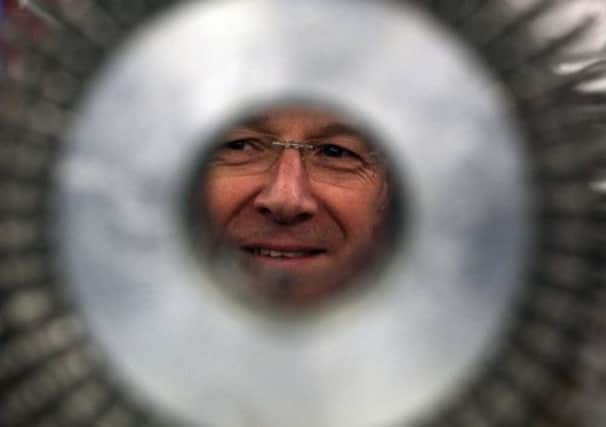Scottish independence: Call for two ‘oil funds’


The Scottish Government-appointed Fiscal Commission working group said a short-term “stabilisation” fund should be set up to buffer Scotland’s finances against volatile oil prices, while a long-term Norwegian-style sovereign wealth fund should also be created for decades to come.
Both funds could be up and running as early as 2017-18, the year after independence, according to the commission, which includes Nobel laureate Professor Joseph Stiglitz.
Advertisement
Hide AdAdvertisement
Hide AdPro-Union campaigners warn billions of pounds would be wiped off spending on schools and hospitals to invest in such funds.
But the working group indicated that investment in such funds could still happen if Scotland’s struggling economy begins to thrive again. Although oil and gas reserves have peaked, there are still an estimated 15-20 billion barrels of oil left. In the past 30 years alone, it has accounted for £284 billion in tax revenues in today’s prices and remains lucrative with prices topping $100 a barrel.
The industry is expected to remain productive until at least 2050 and possibly much longer.
Crawford Beveridge, who chairs the commission, said: “This could help maximise the economic opportunity that Scotland’s oil and gas wealth presents and ensure it provides a lasting benefit for future generations. The economic rationale for establishing such funds is clear and they have been successfully implemented in a number of countries.”
An independent Scotland is likely to inherit a national debt of about £80bn from the UK, and had a deficit of £3.4bn –where tax take outstrips public spending – in 2011-12.
But even with a deficit, the commission said money could be paid into the oil funds if the economy was growing at a faster rate than debt growth.
Finance secretary John Swinney said recovery could see Scotland drop below a 3 per cent deficit by 2017-18. “This would allow an independent Scotland to consider investing modest sums into a long-term fund without an offsetting change to public spending or taxation,” he said.
“Our ambition is therefore that, in time, a greater proportion of Scotland’s oil and gas wealth be invested for the future as the country moves towards fiscal balance.”
Advertisement
Hide AdAdvertisement
Hide AdNorway established its oil fund in 1990 and it is now worth about £470bn.
But Scottish Liberal Democrat leader Willie Rennie said: “The Nationalists’ own experts agree that Alex Salmond’s oil fund could only be added to when the books are balanced. If they are to achieve it by their promised date of 2017-18, they would need to slash spending by £3.4bn.”
Former chancellor Alistair Darling, who heads the pro-Union Better Together campaign, said the deficit would restrict spending after independence. “All existing oil revenues are needed to pay for spending on schools, hospitals and pensions,” he said.
The short-term fund would see an independent Scotland base its spending on a “cautious forecast” of oil revenues. If oil revenues exceed the forecasts, the excess could be transferred to this stabilisation fund.
But if revenues fall below forecasts, the government could use savings to offset this shortfall. It means ministers would not have to increase borrowing, cut public spending or increase taxes.
We pay more per head than anywhere else in the kingdom
Scotland is paying more into the United Kingdom in taxes than its population share, according to official figures.
The country accounted for £42.4 billion – about 9 per cent – of the UK’s overall tax take of £468bn according to the HMRC statistics. Scotland has about 8.4 per cent of the UK population.
The figures also show England accounted for 85.3 per cent of UK tax take, with Wales taking in 3.5 per cent and Northern Ireland 2.6 per cent.
Advertisement
Hide AdAdvertisement
Hide AdThe Scottish Government said the “experimental” statistics provide only partial coverage of Scottish revenues and exclude about £8bn not collected by HMRC but raised elsewhere in Scotland.
Finance secretary John Swinney said: “Even these experimental figures show that Scotland contributed 9.8 per cent of UK HMRC collected revenues in 2011-12 and a further 9.0 per cent in 2012-13 despite only accounting for 8.4 per cent of the UK population. “The fact that Scotland contributes more taxes per head of population than the UK has been shown in GERS [Government Expenditure and Revenue Scotland] to have been the case in each and every year over the last three decades.”
He also voiced disappointment the figures did not use the “independent” estimates of North Sea revenues produced by Professor Alex Kemp of Aberdeen University.
But Treasury Secretary Danny Alexander said estimates of future oil revenues predict a substantial decline. He said: “The Scottish Government needs to set out how it will deal with this especially now HMRC’s new estimates of Scottish North Sea receipts are lower than the Scottish Government’s estimates by an average of £600m a year .”
ELSEWHERE